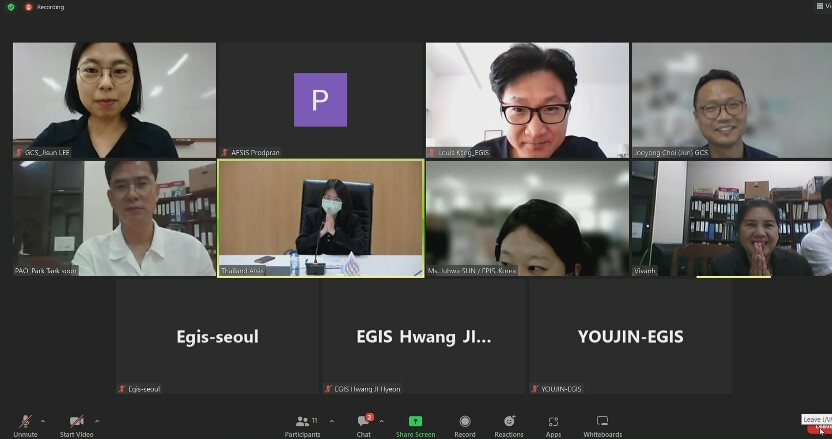
On 19 August 2022, AFSIS Secretariat attended the online kick-off meeting which was conducted by the Korea Agency of Education, Promotion and Information Service in Food, Agriculture, Forestry and Fisheries (EPIS) and the Project Management Consulting (PMC) from the Global Civic Sharing (GCS) and EGIS Korea company limited (EGIS) for the preparation of the related activities and workshop under the 3rd phase of Project for Establishing Real-Time ASEAN Food Security Information System and Developing Human Resources in Lao PDR.
The 3 representatives of the AFSIS Secretariat included Dr. Waraporn Saelee, AFSIS Manager, Dr. Sumanya Ngandee, Deputy AFSIS Manager, and Ms. Prodpran Lomthong, Project Coordinator. In addition, the representative of EPIS was led by Ms. Juhwa Sun, while the representatives of GCS and EGIS were led by Mr. Kang Seok Chan and Dr. Choi Jooyong respectively.
The objective of this meeting was to share, discuss and decide the concrete action for successful collaboration in the 3rd phase of the Real-Time AFSIS project in Lao PDR which AFSIS Secretariat will participate in the Outcome report of the previous Real-Time AFSIS project in 6 target countries namely Cambodia, Indonesia, Lao PDR, Myanmar, Philippines, and Vietnam. The Outcome report will be published on AFSIS website to promote and assist in the development of the method of the project of Food Security Forecasting Model (FSFM) for the ASEAN region in the future.
The meeting ended with all the details being effectively discussed and agreed upon mutually by all parties involved.
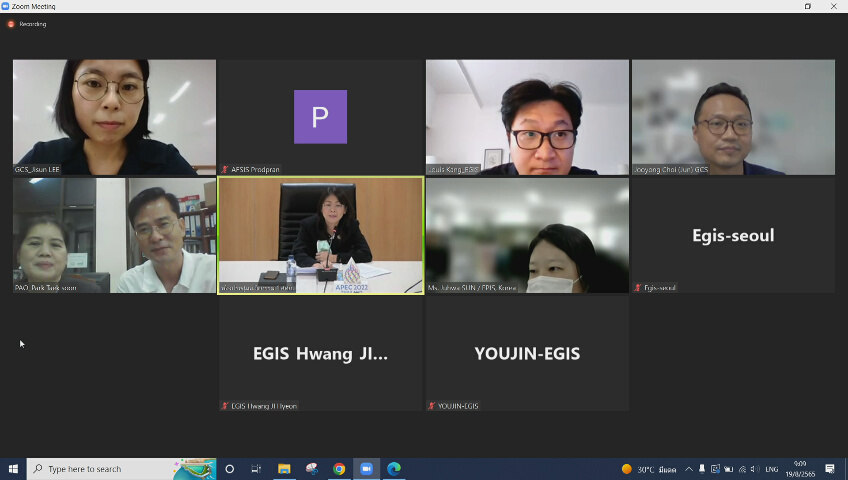
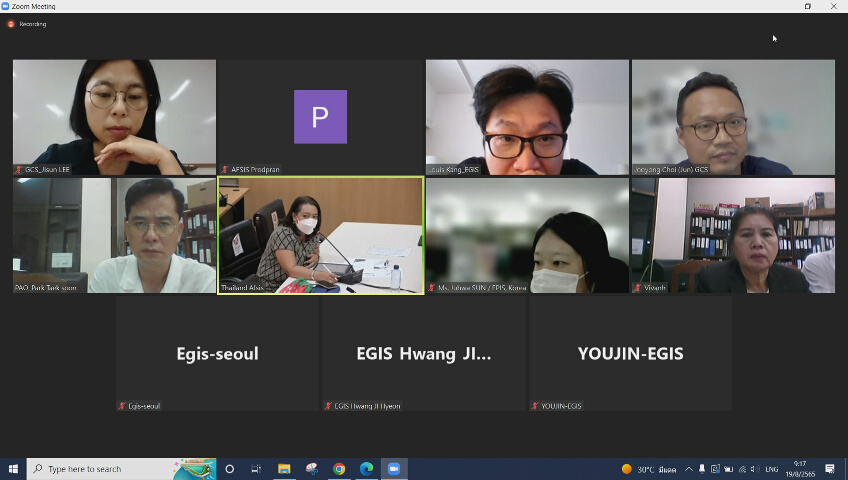
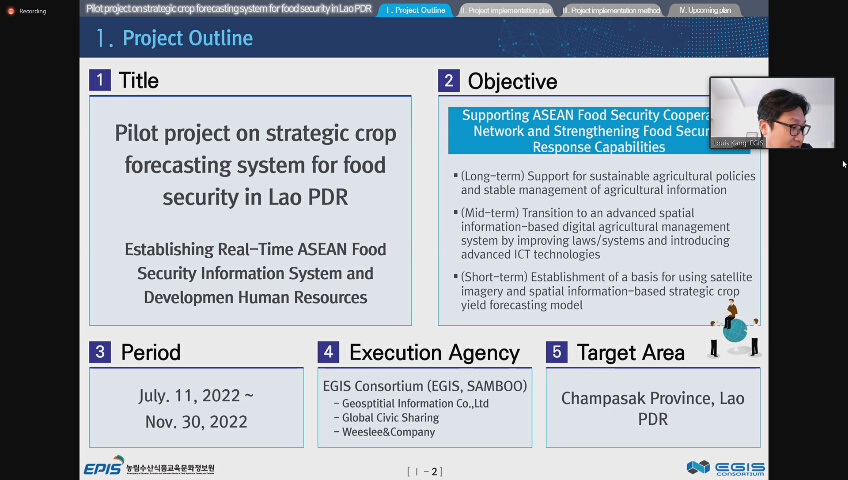
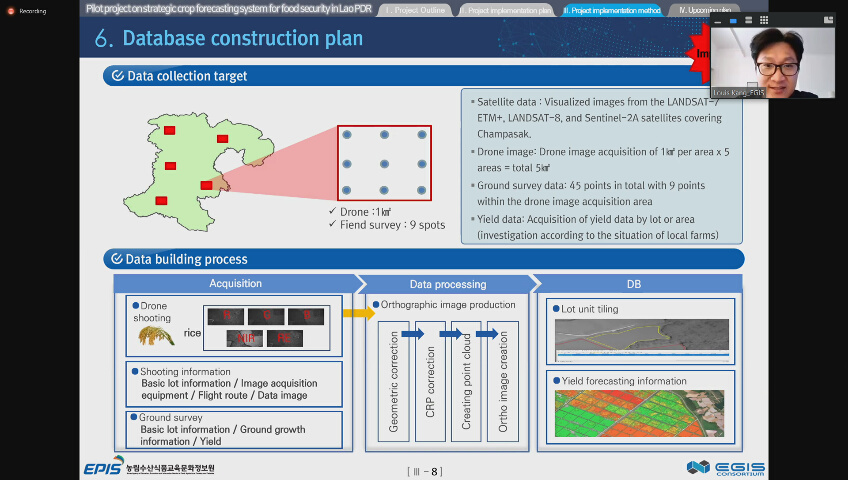
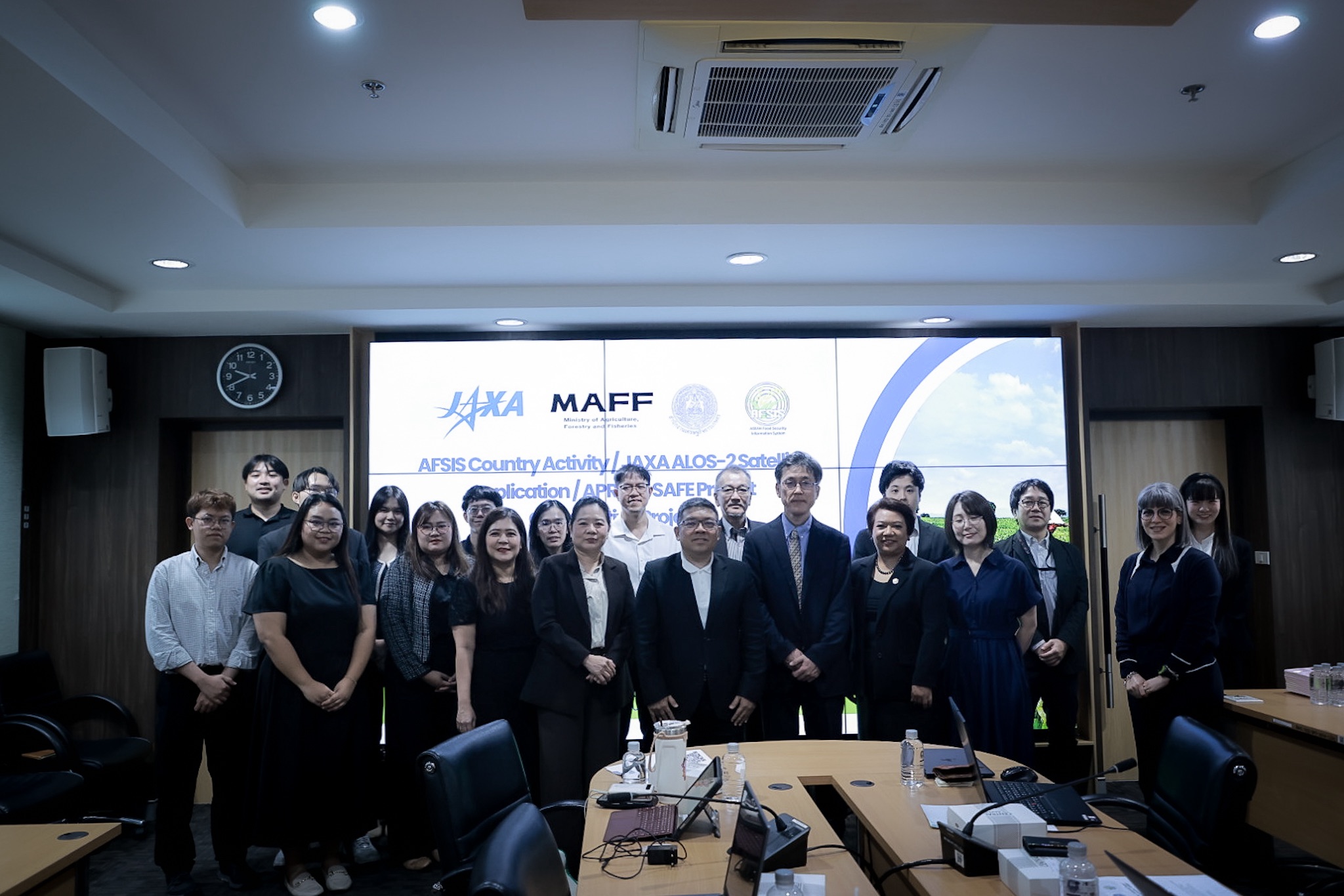
On 12-13 February 2026, the AFSIS Secretariat, in collaboration with the Japan Aerospace Exploration Agency (JAXA), the Remote Sensing Technology Center of Japan (RESTEC), Ministry of Agriculture, Forestry and Fisheries (MAFF) Japan and the Office of Agricultural Economics (OAE), Ministry of Agriculture Cooperatives (MOAC), conducted a workshop conducted a workshop The Promoting Rice Planted Area and Production Estimation Using INAHOR and Space-based Technologies in Thailand at the Meeting Room 2, Innovation Building, 3rd FL, Office of Agricultural Economics (OAE)
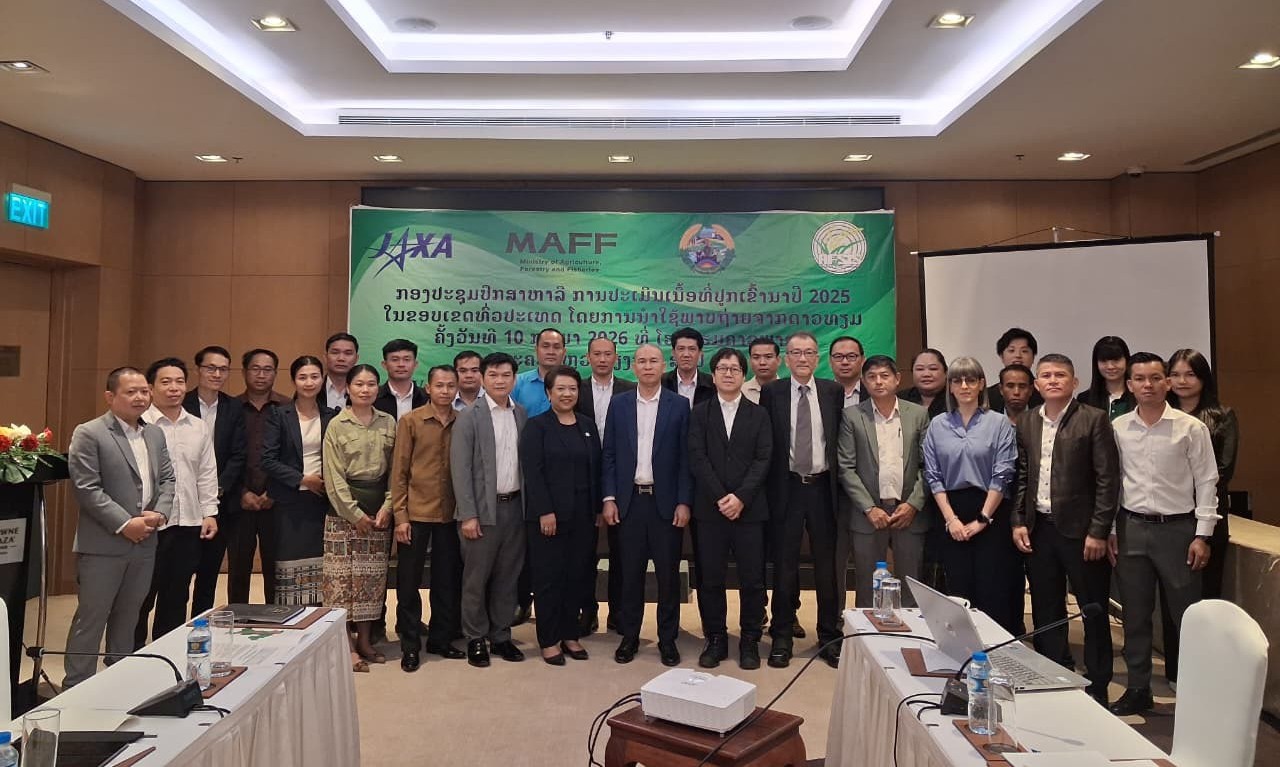
The In-Country Workshop on Promoting Rice Planted Area and Production Estimation Using Space-based Technologies in Lao PDR was jointly organized by AFSIS Secretariat, JAXA, MAFF Japan, and MAE Lao PDR under the AFSIS-GIS and SAFE projects. The event was held in Vientiane with hands-on training on 9 February 2026 and a workshop on 10 February 2026.
.jpg)
On 13–15 January 2026, the Office of Agricultural Economics (OAE), Thailand, in collaboration with the Ministry of Agriculture, Forestry and Fisheries (MAFF), Japan, and the AFSIS Secretariat, conducted the 1st Meeting of Japan–Thailand Expert Dialogue on Agricultural Statistics. The meeting was held at the Office of Agricultural Economics and field survey activities in Chonburi Province.

On 3–4 December 2025, the ASEAN Food Security Information System (AFSIS) Secretariat participated in the ASEAN Plus Three Emergency Rice Reserve (APTERR) Table Top Exercise (TTX) held in Bandar Seri Begawan, Brunei Darussalam.